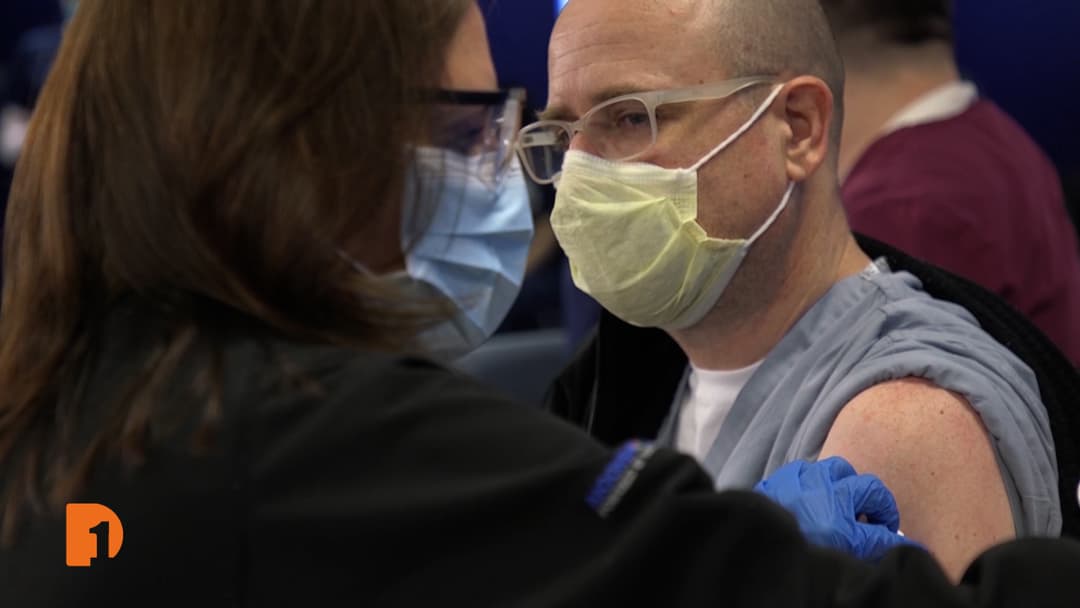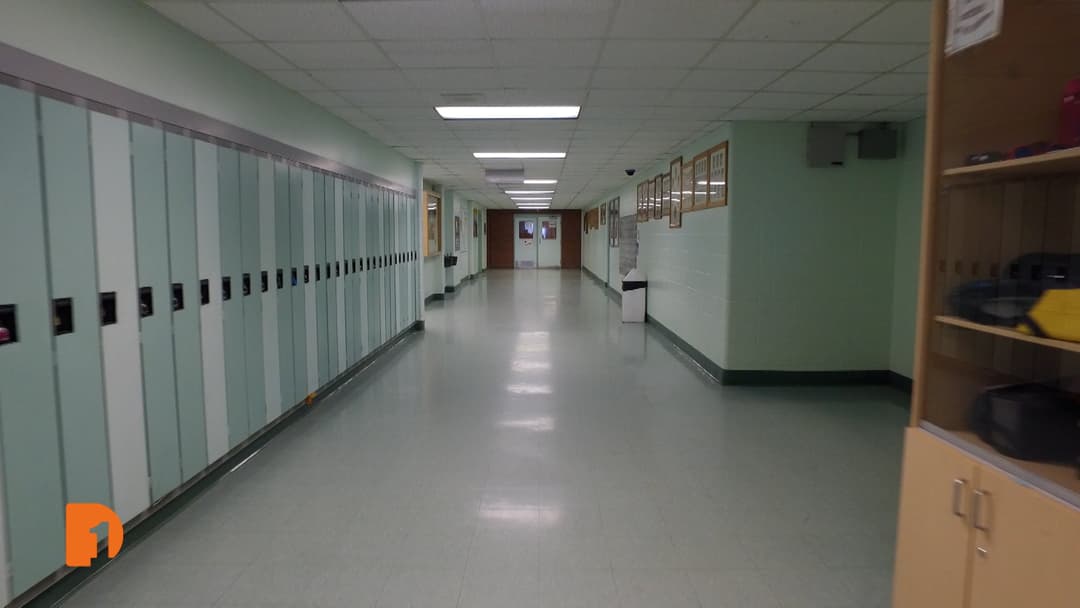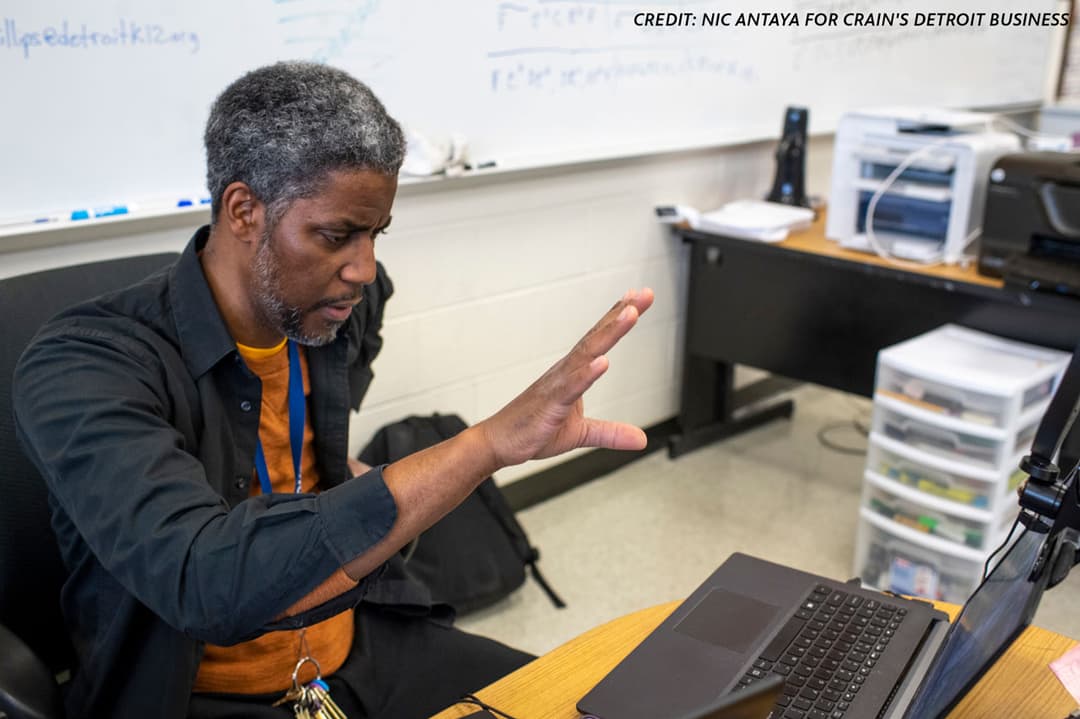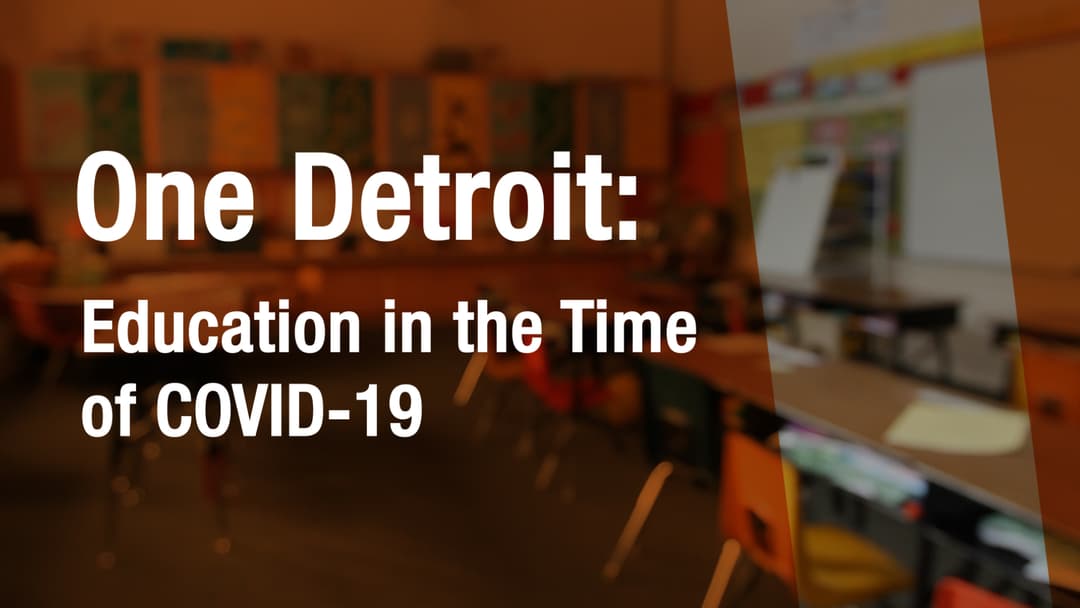Michigan’s Teacher Shortage: Can It Be Considered a Crisis Yet?
Apr 7, 2022
From remote learning to mask mandates, teacher shortages and more, the COVID-19 pandemic has continued to disrupt education for Michigan’s students and educators. Michigan’s teacher shortage specifically has been a widely debated topic across the state, but can it be characterized as a crisis yet? While some headlines and reports might say yes, other education experts don’t think our state’s education system is there yet.
One Detroit Senior Producer Bill Kubota checks in with Chalkbeat Detroit Bureau Chief Lori Higgins, Craig Thiel, the research director at the Citizens Research Council of Michigan, and Tom Gantert, managing editor of right-wing publication Michigan Capitol Confidential, about Michigan’s teacher shortage, and it’s pupil shortage, as well as the recent lifting of mask mandates and what different districts across the state have decided to do with their own internal mandates.
RELATED: Teachers Talk: How Educators Are Grappling with Shortages, Demands
Plus, Kubota talks with Dani Montini, of Midwest Guest Teacher Staffing, about a parallel substitute shortage in Michigan, and viewers will hear from the Michigan Education Association on the overall satisfaction of educators in the field today.
Full Transcript:
Bill Kubota, One Detroit: Lori you had a recent report in the New York Times, you contributed to a story talking about masks in schools specifically in Detroit. What were you finding there and where are we now in lifting that mask mandate?
Lori Higgins, Bureau Chief, Chalkbeat Detroit: On the situation with mask mandates I think what we’re seeing is around Michigan is that most if not all districts have either loosened their mask mandates or lifted them all completely. One of the districts that has continued the mask mandate is the Detroit Community Schools District. Their thinking is they want to wait till after Spring Break to see, you know kids are going to be traveling, last year there was a surge after spring break so there’s a concern that might happen again this year.
We also know that there is another variant out there that hasn’t really affected the U.S. as much as the European countries but there’s that fear that it could happen so Detroit doesn’t want to lift this mask mandate and have to reinstate it you know two weeks later because suddenly there are a lot of cases so they will have a pretty good sense of where they stand within the first week or two of the return from spring break. They do return April 4th.
Bill Kubota: Well the other people to consider are the teachers in all of this. Different in different districts I’m guessing, right.
Lori Higgins: Yeah I mean I think the teachers I talked to particularly, and I’ve talked to a lot of teachers in Detroit in particular, they’re concerned in part because the vaccination rates are so low in the city, you know very few adults are getting vaccinated and very few kids are getting vaccinated so they may feel comfortable with themselves being vaccinated but they’re worried about you know, the classroom.
I spent a little bit of time at a kindergarten classroom about a month ago or so for the New York Times and the teacher that I spent time with, she was wearing two masks and it’s a difficult thing you know wearing a mask because especially when you’re a kindergarten teacher trying to teach language, trying to teach kids how to sound out a word, and a lot of that, some of that comes through by watching someone speak, watching someone say a letter, so there was one time, there were a couple times where she went to the far edge of the room and pulled her mask down so that the kids could, like, see how she forms the ‘cha’ sound, because you know the kids have to get it.
Bill Kubota, One Detroit: Another issue – perhaps a crisis? Not enough teachers…
Lauren Edwards, Fox 17 (news report): The Michigan Education Association says you know what they’re experiencing right now is a crisis…
Bill Kubota: Another story that comes up right now is this teacher shortage, and how do you term that, is it a crisis?
Lori Higgins: I think that the term crisis could apply in some districts, I don’t know that we can say there’s a crisis across the board.
Tom Gantert, Managing Editor, Michigan Capitol Confidential There’s more teachers now than 2007-08.
Bill Kubota: Tom Gantert’s at the right-leaning Michigan Capitol Confidential – looking into teacher staffing issues, filing freedom of information requests to see where school districts really stand regarding recruitment and job offerings.
Bill Kubota: Is it a crisis?
Tom Gantert: You know we’ve done dozens and dozens of stories on this dating back to 2017, I would say it’s questionable is there is even a teacher shortage if you go by the data. I would say there’s more of a pupil shortage in Michigan than a teacher shortage.
Bill Kubota: Less students in Michigan overall -we’re a shrinking population – so less teachers too – but in the latest pandemic year – staffing’s up 3%. That’s what the non-partisan Citizen’s Research Council of Michigan found. And the student/staffing ratio has dropped some. That’s considered good, but the group has taken notice of Governor Whitmer’s plan to boost teachers’ pay across the board.
Craig Thiel, Research Director, Citizens Research Council of Michigan: The largest component in the school aid section of that spending plan is a one-point-five billion dollar employee retention bonus.
Bill Kubota: Every educator would get many thousands in pay boosts the next few years, whether their district is hurting from a teacher shortage or not.
Craig Thiel: The key is to acknowledge that this is a highly localized problem and that the experience in one district isn’t exactly or nearly the same as it is in another district in another part of the state. We just don’t know that a statewide retention bonus program is the best way to approach that problem.
Tom Gantert: Without a doubt there are shortages in some areas, for instance in special education, foreign languages, some of the more advanced placement classes…
Bill Kubota: Chalkbeat’s Lori Higgins can add to that list.
Lori Higgins: We’re now seeing some other areas that we never really had shortages in like English language arts, art and music education, elementary education – those – we were overproducing in some of these areas.
Bill Kubota: Well this brings up this other area of substitute teachers, Where are we now with that, there’s a shortage with them too.
Lori Higgins: Yeah, I mean the substitute shortage we could probably term that a crisis, I think that every district is struggling with subs.
Dani Montini, Midwest Guest Teacher Staffing: At the beginning of the school year I would say it was a crisis, yes it was a crisis.
Bill Kubota: Dani Montini supplies subs for schools. She’s with Midwest Guest Teacher Staffing in Farmington Hills, still coming up short finding the right people.
Dani Montini: We had a lot of candidates that came to us and wanted to do virtual where the schools wanted placements in facilities.
Bill Kubota: Pay for subs, or call them guest teachers, higher now. Pre-pandemic, the pay was one hundred dollars a day.
Dani Montini: Through our firm we pay them $135 daily rate.
Bill Kubota: And how many hours a day do they work for that?
Dani Montini: Six to eight hours. Many times you’ll call them and they’re unwilling or unable meet the need.
Bill Kubota: So teaching, going out of style? The Michigan Education Association commissioned a study.
Paula Herbart, Michigan Education Association President (from press release video): This survey proves what we already knew.
Bill Kubota: They’re talking job satisfaction; make that dissatisfaction.
Emma White, Emma White Research (from press release video): And we’ve seen a pretty dramatic drop in teachers’ job satisfaction…
Dani Montini: It’s not a desirable field like it used to be, there’s just too many other options where they can make a lot more money and have a lot less headaches.
Bill Kubota: The M.E.A. – the teachers’ union – their survey released in February showed 20% now want a different career. Consider that along with other data showing fewer coming out of college with education degrees.
Lori Higgins: I think crisis may not necessarily be the right term right now but I think that if we, if Michigan isn’t able to figure out a way sort of stem the shortages we could be heading into a crisis. What about one year down the line or two years down the line? Will people as they reach retirement age decide you know, this is enough for me, I’m done with teaching. We don’t know, we don’t know and I think you know if we don’t address these things now like we could be in a serious crisis.
Subscribe to One Detroit’s YouTube Channel & Don’t miss One Detroit Mondays and Thursdays at 7:30 p.m. on Detroit PBS, WTVS-Channel 56.
Catch the daily conversations on our website, Facebook, Twitter @DPTVOneDetroit, and Instagram @One.Detroit
View Past Episodes >
Watch One Detroit every Monday and Thursday at 7:30 p.m. ET on Detroit Public TV on Detroit Public TV, WTVS-Channel 56.
Stay Connected
Subscribe to One Detroit’s YouTube Channel and don’t miss One Detroit on Thursdays at 7:30 p.m. and Sundays at 9 a.m. on Detroit PBS, WTVS-Channel 56.
Catch the daily conversations on our website, Facebook, Twitter @OneDetroit_PBS, and Instagram @One.Detroit
Related Posts
Leave a Reply
Your email address will not be published. Required fields are marked*





























